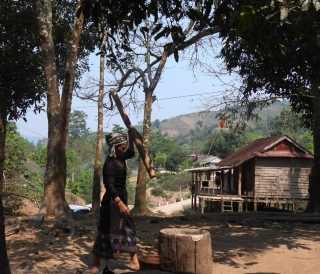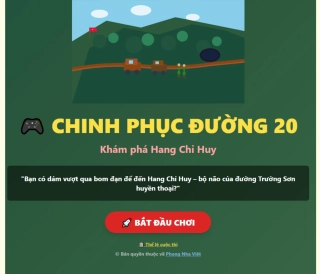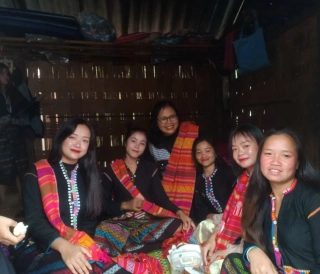UNESCO’s Educational Philosophy – Lessons from the World’s Most Progressive Nations
13-03-2025 16:18
Education as the Foundation of Human and Social Development
Education is the cornerstone of both personal growth and societal progress. The United Nations Educational, Scientific and Cultural Organization (UNESCO) has helped shape a global educational philosophy centered on sustainability, peace, and human advancement.
This vision was powerfully articulated in the 1996 report, “Learning: The Treasure Within”, which introduced the Four Pillars of Education:
Learning to Know, Learning to Do, Learning to Live Together, and Learning to Be.
These pillars not only reflect individual development, but also underscore the transformative role of education in building a more just and sustainable society.
UNESCO’s educational philosophy responds to the urgent need for holistic learning that can address global challenges such as poverty, inequality, and climate change. According to the Delors Report (1996):
-
Learning to Know encourages critical thinking and lifelong learning;
-
Learning to Do equips learners with practical skills to adapt to technological change and labor market demands;
-
Learning to Live Together fosters inclusion, cultural diversity, and a spirit of cooperation;
-
Learning to Be focuses on personal development, ethics, and social responsibility.
Unlike many traditional education systems that emphasize rote knowledge, UNESCO’s approach highlights the importance of nurturing both skills and personal values—preparing learners not just for work, but for life in a shared, complex world.

Diverse Pathways to Educational Excellence: Lessons from Finland, Singapore, and Germany
Finland is widely praised for its flexible and student-friendly education system, which avoids standardized testing until the end of lower secondary school. The system places great trust in teachers and creates a nurturing learning environment. According to the OECD (2018), Finnish students consistently perform well in international assessments thanks to a holistic approach to education that emphasizes personal development over exam pressure.
Meanwhile, Singapore has developed a highly adaptive education model that allows students to choose learning pathways based on their individual strengths. The government heavily invests in STEM education (Science, Technology, Engineering, and Mathematics) and practical skills training, preparing students to thrive in the global labor market (Ng, 2017).
Comparing the two, Finland focuses on well-rounded development and stress-free learning, while Singapore emphasizes competitiveness and economic growth through innovation.
Germany stands out with its Dual Education System, which combines classroom learning with hands-on training at companies. This model significantly reduces unemployment and ensures a highly skilled workforce (BIBB, 2020). In contrast to Finland’s creative learning environment and Singapore’s tech-driven innovation, Germany’s approach prioritizes practicality and a strong alignment with labor market demands.

UNESCO’s Educational Philosophy in Practice – Global Lessons and the Vietnamese Journey
UNESCO’s educational philosophy is not merely theoretical; it has been widely adopted around the world through lifelong learning initiatives, the integration of environmental and ethical education, and digital transformation in classrooms. Many countries have incorporated sustainable development themes into their curricula to raise awareness about climate change. Technology also plays a vital role in personalizing learning content and expanding access to quality education.
While countries like Germany and Singapore emphasize practical and labor-market-driven training, Finland continues to uphold an open, low-pressure, and creativity-driven philosophy that aligns closely with UNESCO's vision.
In Vietnam, significant progress has been made—more than 98% of children have access to primary education (Ministry of Education and Training, 2021). The country is undergoing a strong digital transformation, and its new curriculum focuses on developing students’ competencies. However, Vietnam’s education system remains largely theoretical and exam-oriented, with limited alignment to labor market needs and significant disparities between regions in education quality. Compared to developed nations, Vietnam still faces challenges in shifting from a traditional model to a more flexible and student-centered approach.
To achieve sustainable educational reform, Vietnam can draw inspiration from Germany’s dual vocational model, Finland’s creative pedagogy, and Singapore’s innovation-oriented education. Strengthening partnerships between schools and businesses will provide students with practical experience, while expanding lifelong learning opportunities will allow workers to continually update their skills. Moreover, integrating inclusive education, intercultural awareness, and life skills into mainstream curricula will help students foster a global mindset.
UNESCO’s philosophy emphasizes the holistic development of individuals, striking a balance between knowledge, skills, and character. Developed nations have successfully adapted these principles into progressive systems. For Vietnam, continuing along the path of practical reform will empower learners to thrive in a globalized, ever-changing world—with confidence, empathy, and resilience.
Tuệ Minh
References
BIBB (2020). The Dual System in Germany: Success Factors and Challenges. Federal Institute for Vocational Education and Training.
Bộ GD&ĐT (2021). Báo cáo tổng kết giáo dục Việt Nam 2021. Hà Nội.
Delors, J. (1996). Learning: The Treasure Within. UNESCO.
Ng, P. T. (2017). Learning from Singapore: The Power of Paradoxes. Routledge.
OECD (2018). PISA 2018 Results: What Students Know and Can Do. OECD Publishing.
UNESCO (2015). Rethinking Education: Towards a Global Common Good? UNESCO Publishing.
UNESCO (2020). Global Education Monitoring Report. UNESCO.
The Bru – Vân Kiều Philosophy of Worshiping the Living Soul
The Living Soul Worship Belief of the Bru – Vân Kiều People in the Trường Sơn Range, Vietnam
Mini Game: Conquer Road 20 – Explore Hang Chi Huy
Travel Mini Game: Conquer Route 20 – Explore Commander Cave – Join Now to Win Free Tours and Exciting Prizes
The Ma-Coong Drum Beating Festival
The Ma-Coong Drum Beating Festival is one of the most unique cultural events of the Bru - Van Kieu ethnic group, held annually in the Truong Son mountains, Quang Binh. This festival is not only a traditional ritual deeply rooted in spiritual beliefs but also an occasion for the community to come together, enjoy festivities, and find life partners. With the resounding drumbeats echoing through the vast jungle, the festival is a symbol of reverence for the gods and a cultural emblem of the Ma-Coong people.





